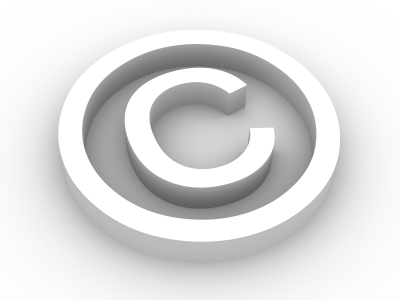Thursday, October 4
Overview of Music Publishing
Copyright
Often the process of registering a copyright is what comes to mind when people hear the term copyright. However, songs are automatically copyrighted as soon as they are in tangible form, even recorded at home or simply written down. Copyrighted songs have to be original (not copies of another piece) and significant enough to constitute a work. Copyrighting your work (getting it out of your head and in tangible form) not only protects it from being copied or used by unauthorized parties but also is the first step to publishing your material and ultimately being paid for it.
Once your work is copyrighted you have the exclusive rights to:1. Reproduce the work, 2. Distribute copies of the work, 3. Perform the work publicly, 4. Make a derivative work. It also means no one else can do these things without your express consent.
There are two general rights covered in a music copyright : the authorship of a song and the ownership of a song. According to Copright Law, you are the natural owner of every song you write until you assign the ownership to someone else.
Every song is made up of two equal parts; not the lyrics and the melody but the writer share and the the publisher share.
The writer share represents the authorship of the song. While a copyright can change hands many times; the writer share remains the property of the author.
The other fifty percent, the publisher share, is the equitable share. It is what you can sell or buy. In this context it is known as the “copyright”. When a publisher acquires a copyright, it is acquiring the publisher share.
Control
The Publisher controls the writers share. The publisher licenses mechanical , print and synch rights on behalf of itself and the writer. These royalties and fees are collected by the publisher (the owner of the copyright) for both the publisher share and the writer share. It is the publisher’s responsibility to pay the writer. Performance royalties are the only royalty type where the writer can collect his writer royalties directly from the performing rights organization. Control means the publisher has the right to negotiate and execute all licenses.
Royalties
Ongoing earnings of licensed songs from each sale or broadcast.
Exploitation
In music publishing, exploitation is a good term. You want your songs to be exploited. Landing a song in a film or television show is an exploitation; somebody recording your song is an exploitation; releasing a record is an exploitation. When one of those songs from your record becomes part of a greatest hits package down the line – that’s an exploitation. An exploited song that is licensed and registered opens revenue streams.
To continue reading simply click on the link.
Source: KnowTheMusicBiz
We want to know your take... leave a comment below.
.
Subscribe to:
Post Comments (Atom)


No comments:
Post a Comment
Type Comments Here...